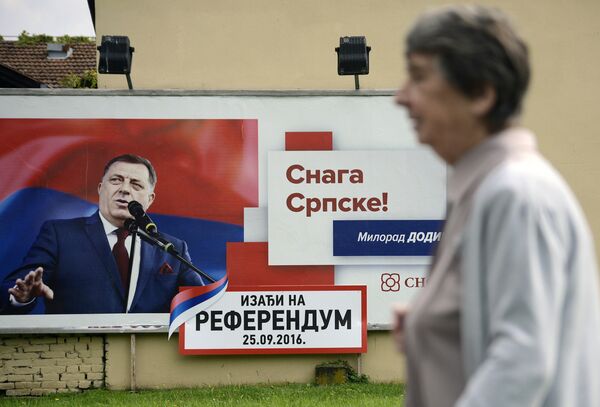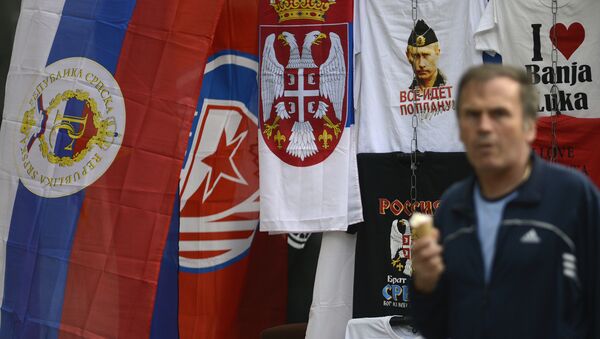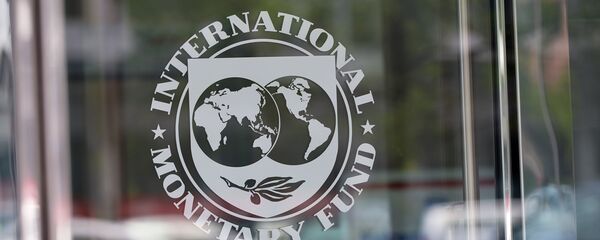The interview came in the run-up to Dodik's meeting with Russian President Vladimir Putin in Moscow, where the topic is expected to be high on the agenda.
During the September 25 referendum, participants will have to answer a single question: about whether they support the celebration of the Day of Republika Srpska on January 9.
In November 2015, Bosnia's state-run Constitutional Court ruled that the entity's annual statehood celebration on January 9 is unconstitutional.

The September 25 referendum will seek public support for the Day of Republika Srpska, which it hopes will continue to be celebrated on January 9, the day the Serb-dominated entity was formed under the leadership of Radovan Karadzic just before war broke out in 1992.
On September 17, the holding of the referendum was banned by Bosnia's Constitutional Court. Moscow has, for its part, repeatedly called for a consensus to be reached on the matter, warning against demanding concessions only from the Republika Srpska.

Asked about the purpose of the referendum, Milorad Dodik said that the referendum is a reaction to the actions by Bakir Izetbegovic, the Bosniak member of the tripartite Presidency of Bosnia and Herzegovina.
According to Dodik, Izetbegovic "showed and proved that the Constitutional Court only sticks to his decisions."
"The Republika Srspka showed that it is ready for dialogue and partnership, not for the role of the subjugated side. We will continue to defend our interests, which are in no way directed against the others. This is not a referendum on secession as some can imagine," Dodik said, referring to ambassadors of Western countries.
He also made it plain that if Sarajevo tries to resort to the use of force, Republika Srspka will immediately withdraw from Bosnia and Herzegovina.
"Even for a second we would not stay in a state which would use violence against us," he pointed out.
He also said that the West's policy on Bosnia and Herzegovina is only aimed at upholding the interests of the Bosniak side, something that hinders the reconciliation process.
"Western ambassadors consider themselves masters and rulers in Bosnia and Herzegovina, and they are fully on the side of the Bosniaks. Such a policy hampers the process of reconciliation of peoples," Dodik said, adding that the West wants to see only obedient politicians who will implement its decisions.



